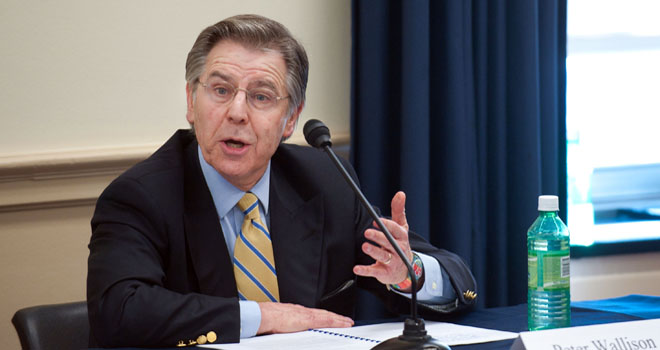A Republican on the federal commission charged with finding the cause of the nation’s financial crisis is pushing back at allegations that he improperly advocated for a repeal of financial regulations. He’s flinging back in the faces of his Democratic opponents the charge that he wanted a pre-determined outcome from the panel’s report.
Peter Wallison, in an article posted on the conservative group American Enterprise Institute’s website, accuses Financial Crisis Inquiry Commission Chairman Phil Angelides, a Democrat, of a “concerted effort to suppress” data from Wallison’s colleague that they claim showed the government’s mortgage policies played a role in the financial crisis.
Angelides, Wallison writes, “was intent on reporting that the financial crisis was caused by greed, misconduct and lack of regulation of the private sector, exculpating government housing policy from any significant responsibility.”
The report critical of Wallison’s actions on the commission was issued by Democrats on the House Oversight Committee. It was released after Oversight Committee Chairman Darrell Issa (R-CA) canceled a hearing on the FCIC because, Democrats allege, clear evidence that emerged didn’t fit his narrative of what went wrong with the panel.
Wallison’s response to the report says he didn’t “leak” a memo circulated to the commissioners about the work of Ed Pinto, his colleague at AEI. The memo challenged Pinto’s report, which blamed the financial crisis on government regulation of the mortgage industry.
“The memo did not say it was confidential, so I did what any fair person would do in the circumstances: I sent it to Pinto for his comments,” Wallison writes. “This is presented in the committee staff report as ‘leaking’ the memo. But leaking has the connotation of a surreptitious or sneaky action, which is far from what I did.
“I asked for Pinto’s comments, and when I got them I circulated the memo to the other commissioners,” Wallison writes. “This obviously was not a ‘leak,’ although it was characterized by the Commission’s General Counsel as a violation of the Commission’s confidentiality requirements.”
His full response is available here.









